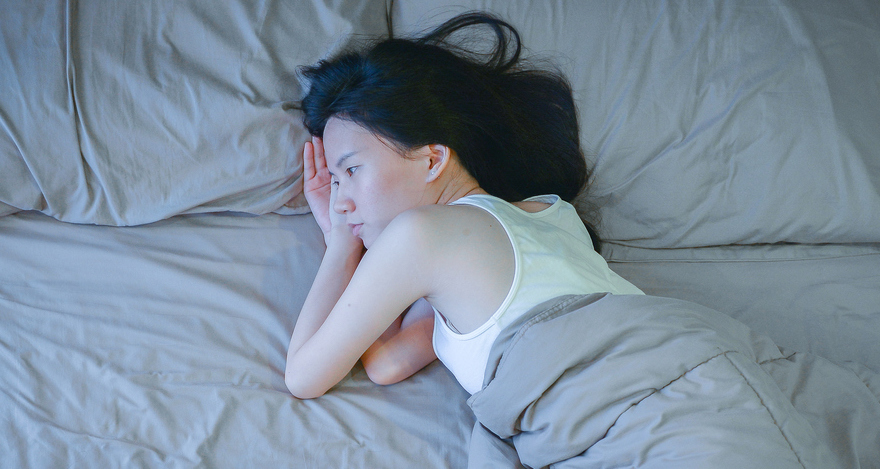If you’re reading this website, you probably have an interest in food, and you’ve probably heard about Whole 30. Whole 30 is sort of a month-long elimination diet (although it’s frequently referred to as a lifestyle or way of thinking, and “not a diet”) that asks you to remove foods that are generally considered “craving-inducing, blood sugar disrupting, gut-damaging, and inflammatory.”
These include legumes, dairy, processed foods, sugar, alcohol, and grains.
So while doing Whole 30, you’re doing a lot of clean-eating, focusing on foods that are all-natural and easy to pronounce. No chips! No wine! No candy!
Yeah, no fun.
In Gray Chapman’s recent Self essay, A Nightmare About Nachos Made Me Realize That Dieting Was Causing Me Food Anxiety, she gets into the psychology behind her experience with dieting — and what it really means on a psychological, and even subconscious, level.
Chapman explains that she’d been doing the Whole 30 for a week when she was hit with nightmares — literally — about food.
Specifically, she dreamt of going to town on gooey nacho cheese, and having to start the whole diet all over again. The rule is, you need to eat Whole 30 for 30 days straight.
If you fail, you need to start again.
She writes, “I awoke in a panic, horrified to realize that I’d gone off-plan and would have to start all the way over, like I was respawning in some twisted nutritional video game. When I woke up and shook off the sleep, I was awash in relief once I realized no nachos had been consumed. But the lingering unease stuck with me.”
Chapman went on to explain that she had a fraught relationship with food anyhow, and that doing the Whole 30 only underscored that:
“Growing up, I, like lots of us, struggled with my body image and as a result flirted on and off with trying to lose weight through high school and college.”
She also mentioned experiences with resenting her body (but loving food, as we all do!).
Although she tries to be mindful of what she eats, she explained, eliminating food groups was never a focus. When she bought into Whole 30, she was struck by its promise — to help figure out what works best for her body.
However, she felt uneasy about it once she began embarking on the diet:
“I guess that on some level I did know that I felt ambivalent about the diet I was following and moreover, I was self-conscious that food had come to have power over me.”
She continued, “I thought, and worried, about my meals constantly… For me, rigidity seems to create conditions that amplify my own anxieties,” she wrote, mentioning that it felt militaristic rather than motivating.
The piece goes on to suggest that some diets, simply with their focus on serious elimination, aren’t equipped to help us restore health to our eating habits or mindsets.
In fact, they can feel guilt-inducing or self-shaming rather than empowering.
Champion went on to say:
“Nachos are bad; therefore, I felt that I was, by extension, inherently bad for eating and enjoying them (even in my sleep).”
I’m reading about that Whole 30 diet thing while eating a whole pint of ice cream
— Abby (@aagreene87) January 9, 2019
Nailed it
Today Chapman has changed her approach to eating:
“These days, I try to seek out the foods that make me feel good — a category which of course includes things like leafy greens and lean protein, but also, without question, buttered sourdough toast.”
I had a dream I cheated on whole 30...what is this diet doing to me????
— Joi Ware (@JoiWare) March 7, 2019
Still, she experiences some negative feelings that may have stemmed from Whole 30.
“I’m still not sure I’ll ever be able to fully shake the notion that certain food groups are all good or all bad.”
“And to be clear, this isn’t something Whole 30 told me or taught me directly. It’s really all of diet culture that is to blame for the way many of us think about and relate to food and eating,” Chapman says.
In the end, it’s important that we honor our bodies and make healthy choices for ourselves that leave us feeling empowered and self-compassionate, rather than drained, guilty, or totally out of line with who we are as people.
If Whole 30 works for you, though, that’s great!
But if a diet or a major lifestyle change doesn’t feel right to you, it’s not a fault of yours. It’s simply not the right direction for you.
Hey, maybe it’s a taco diet:
Forget Keto, Whole 30, Vegan, Low Fat, Low Carb... THIS IS THE DIET FOR ME. https://t.co/QNjEOE0i8p
— Amanda Guerra (@AmandaGuerraCBS) January 4, 2019
Different people react differently to specific foods and to certain diets.
Dieting mindset can bring about all sorts of ideas around self-worth, shame, and body image.
In the end, it’s important to honor your body and eat what feels instinctually right — while making an informed decision with your doctor.
It’ll never not be funny to me when I’m talking about why I don’t support dieting and someone chimes in with, “Well it’s not a diet”
— Cara Harbstreet, RD (@StreetSmartRD) October 26, 2018
Well, yes, actually, since Whole 30 tells you what you can and can’t eat, it is indeed a diet
And stay away from any fad diet or anyone telling you that “X” solves all your problems.
Eating is personal!
What sort of healthy eating habit has worked for you and not made you feel deprived?
Let’s discuss.

